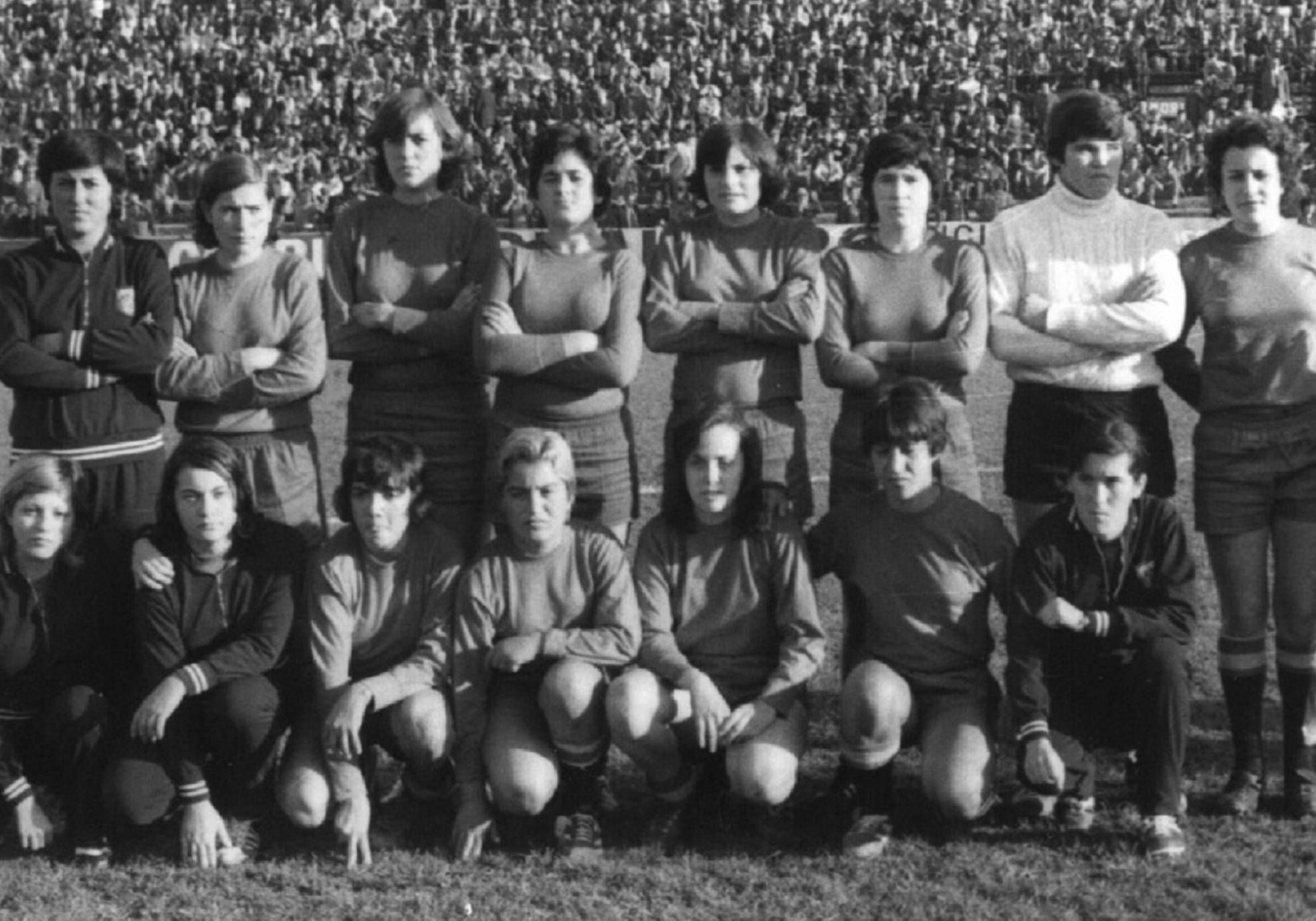Few voices can better explain what this World Cup means for women’s football than that of Irene Paredes. Indisputable for Jorge Vilda, he has been playing with La Roja since 2011, when Spain did not even know what it was like to play this tournament. “We have grown up thinking that it was not our place. They have made us feel that way. Now people already know that this place is also ours”, Irene expresses a few hours before a day that will go down in the history of national sports. That claim is the legacy left forever by a Spain that he faces before England (12:00 pm, La 1) an unprecedented event, the first final of a world. The women’s soccer team is only 90 minutes away from becoming champion. “We have put a country on its feet. Now we have to take it out on the street”, proclaimed Vilda after winning the ticket to the final.
Whatever happens, the duel against the English, who are also looking to finally stamp the long-awaited star on their shirt, will remain for eternity. Because this World Cup goes far beyond the World Cup itself for Spain, also for women’s football, which in the event in Austria and New Zealand has risen to another dimension. It has undoubtedly been the tournament that has confirmed once and for all his professionalizationsomething for which this and other generations have been fighting for, who for decades have been invisible, in the shadows, submerged in precariousness, looking for a way to claim what was theirs before society and institutions that turned their backs on them.
The road to Spain began with some pioneering who played in the shadows in the 70s, without even being recognized by the Federation. They, Encarnación Caracuel, Conchi Amancio, Isabel Fuentes or Victoria Hernández, among many others, dreamed of being where Alexia, Aitana, Salma or Irene are today. They played little more than hide and seek, singled out for doing what they liked. From there, to the first steps, small, the first conquests of a sport in which there was only room for men: recognition as a national team in 1980 –under pressure from UEFA–, a coach –who had never seen women’s football– and the first official match in 1983 –a year after Spain organized the men’s World Cup–.

“We want to be the best in the world”
An authentic journey in the desert that has two dates marked in red: the euro 1997the first international tournament for Spain, which reached the semifinals, and the World Cup 2015. Five years after the men’s team achieved glory in South Africa, the girls finally reached the final phase of a World Cup. Spain came out of the event held in Canada eliminated at the first exchange and without reaping any victory. It would arrive in 2019, in the following edition, in which La Roja, already with Jorge Vilda on the bench, reached the round of 16, where they surrendered to the all-powerful United States.
And from there to this year’s feat. Along the way, many titles in grassroots football, the consolidation of FC Barcelona as a power at club level and a firm commitment by the Federation to place Spain, finally, in the elite. “We want to be the best in the world,” says Vilda at the gates of the most important match in the history of football –and perhaps sport–, a Spanish women’s match. “This group has overcome very complex adversities, has been able to be united from the beginning, working. Beating Sweden when it had never been achieved, also capable of rising, for example, from a 4-0 against Japan, and of creating a team that is going to play in a World Cup final and that aspires to be champion”, says the coach.
To achieve this, they will have to overcome the rival that left them out of the last Euro Cup, Wiegman’s England. The battle against the current European champion will be tremendous. “we have to be us. Press like we know how, attack like we know how, and join the fight. For us the game is already being played and we cannot lose focus”, says Vilda.
Spain dreams of its first World Cup, of finishing the path and the fight that the pioneers began in the 1970s and continued for other generations later. Whatever happens, no one will be able to erase a legacy that already remains forever. “If this final serves to let them know that this place is also ours, that it can and that we can be a reference, then that is also history,” proclaims Irene Paredes. The World Cup is theirs, the ones that started and the ones that will come.
Keep reading:
Sarina Wiegman, the English architect who posed as a boy to play soccer
This was how it was to play in the women’s team in the 20th century: “For 23 years I have been a footballer and I have not been able to pay for them”

